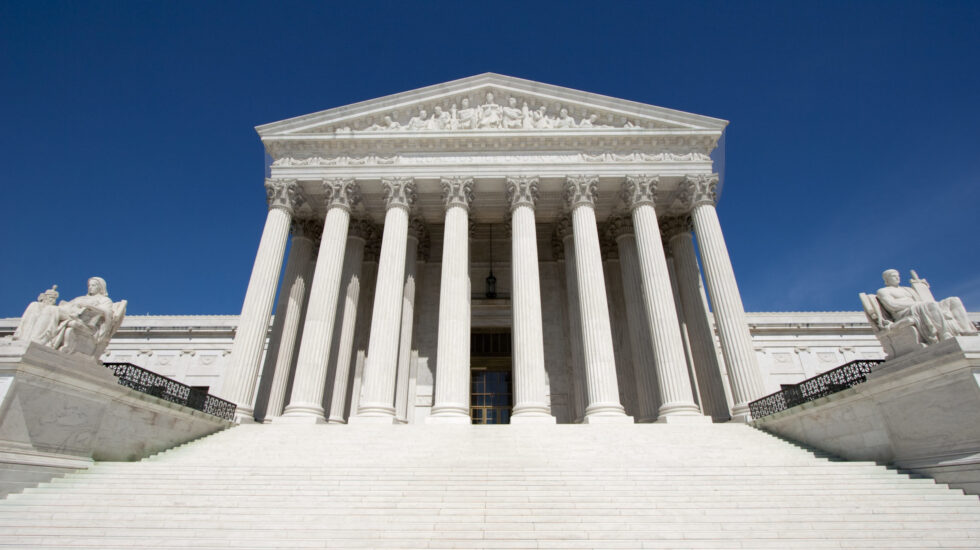The Supreme Court heard the most important gun rights case in a decade Wednesday morning. At issue is a New York law that restricts residents from carrying firearms in public without a difficult-to-obtain license.
CNN reports that “the Supreme Court seemed ready to expand Second Amendment rights after hearing arguments for over two hours and expressing skepticism about” the New York law. Similar restrictions exist in seven other states that would be impacted by the high Court’s ruling: California, Delaware, Hawaii, Maryland, Massachusetts, New Jersey and Rhode Island.
CNN adds, “The court could potentially allow more guns to be carried on some of the busiest streets in the largest cities in the nation, at a time when the Biden administration has vowed to push for enhanced gun regulations.”
The New York Times adds more details:
Several members of the court seemed to be searching for a way to rule narrowly in the case, which could involve deciding that local officials have too much power to deny licenses to people seeking to carry guns in public for self-defense while affirming the state’s right to exclude guns from sensitive places.
Chief Justice John G. Roberts Jr., for instance, expressed skepticism about New York’s licensing system, saying it was surprising that a constitutional right was subject to the discretion of local officials. But he was among the justices who asked questions about whether guns could be barred at settings as varied as subways, protests, Yankee Stadium, Times Square on New Year’s Eve and college campuses like New York University and Columbia University.
Paul Clement, the lawyer representing the gun owners challenging New York’s law, conceded that bans on guns might be appropriate in certain settings, but insisted that “carrying a firearm outside the home is a fundamental, constitutional right” that New York unduly restrains.
Brett Kavanaugh, one of three justices nominated by former-President Donald Trump, seemed to agree that obtaining a license to carry a firearm in public is too difficult in New York, where you have to show an “actual and articulable” self-defense need, as opposed to one that is “speculative or specious.”
“Why isn’t it good enough to say I live in a violent area?” Kavanaugh asked.
Justice Samuel Alito added, ″There are a lot of armed people on the streets of New York and in the subways late at night right now. Aren’t there? All these people with illegal guns, they’re on the subway, they’re walking around the streets. But the ordinary, hard-working, law-abiding people I mentioned, no, they can’t be armed.”
New York Solicitor General Barbara Underwood responded, “The idea of proliferating arms on the subway is precisely, I think, what terrifies a great many people. The other point is that proliferating guns in a populated area where there is law enforcement jeopardizes law enforcement, because when they come, they now can’t tell who’s shooting and the shooting proliferates and accelerates. And in the end, that’s why there is a substantial law enforcement interest in not having widespread carrying of guns on the subway.”
Justice Stephen Breyer, picking up on Underwood’s point, worried about “gun-related chaos” if the New York law was struck down.
According to The Washington Post:
Breyer suggested that even people of “good moral character” who had consumed a lot of alcohol at a football or soccer game could end up getting “pretty angry at each other.”
If those people were carrying concealed weapons at sporting events, he said, statistics show that “a lot of people end up dead.”
Clement responded that major cities like Phoenix, Houston and Chicago allow citizens to carry firearms outside their homes.
“Most people think that Chicago is the world’s worst city in regard to gun violence,” replied Justice Elena Kagan.
A final decision on the case is expected next spring. FiveThirtyEight explains, “if the court’s conservative majority decides to issue a […] sweeping decision, this case could also open the door for a flood of challenges to other gun restrictions.”
The Post adds:
It’s been 13 years since the court’s conservative majority, on a 5-4 vote, declared an individual right to gun ownership in the landmark case District of Columbia v. Heller. An even more conservative court agreed to hear this dispute, New York State Rifle & Pistol Association v. Bruen, after multiple justices have said that the court needs to more clearly define the rights first acknowledged in 2008. Justices Brett M. Kavanaugh and Amy Coney Barrett, in particular, are seen as pivotal to the case’s outcome.
